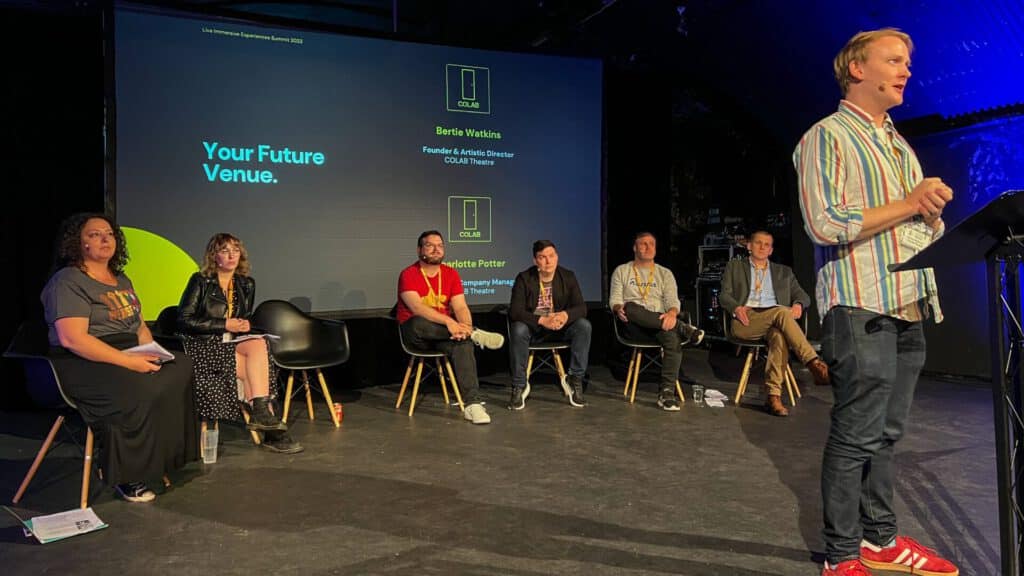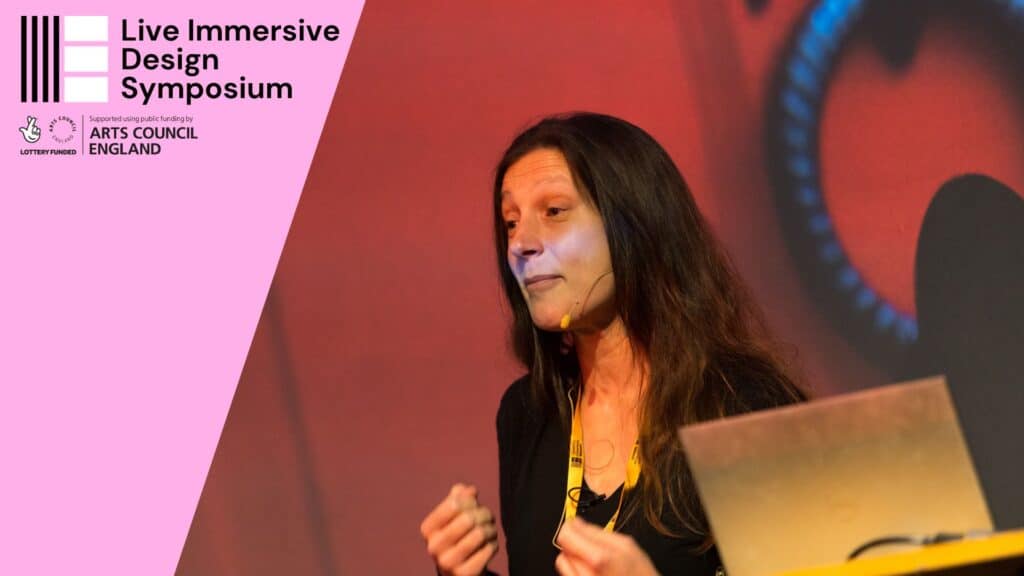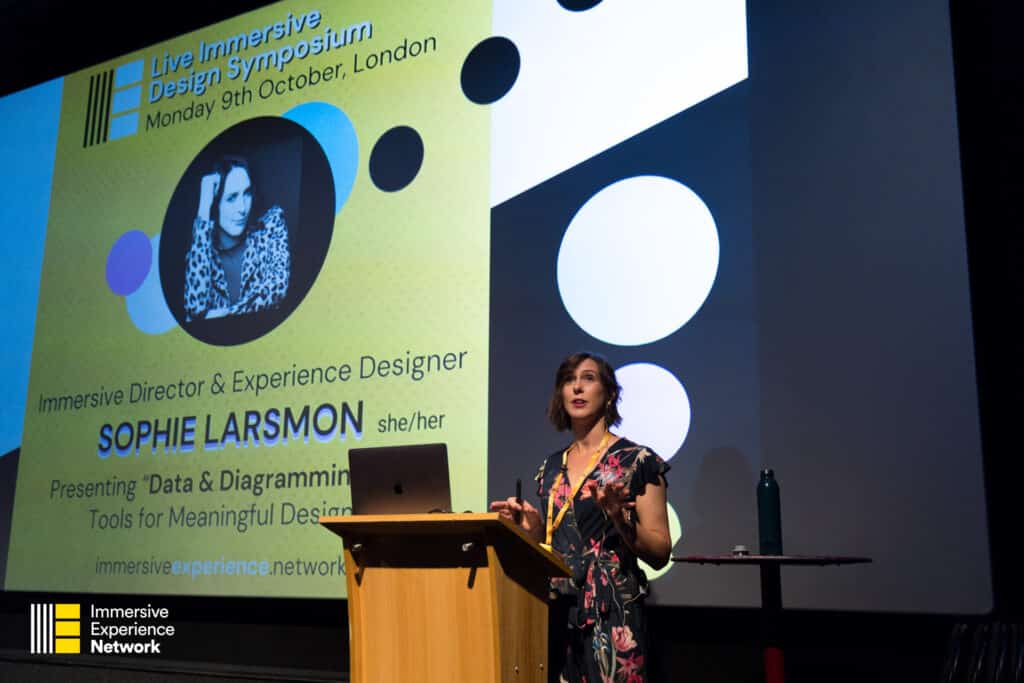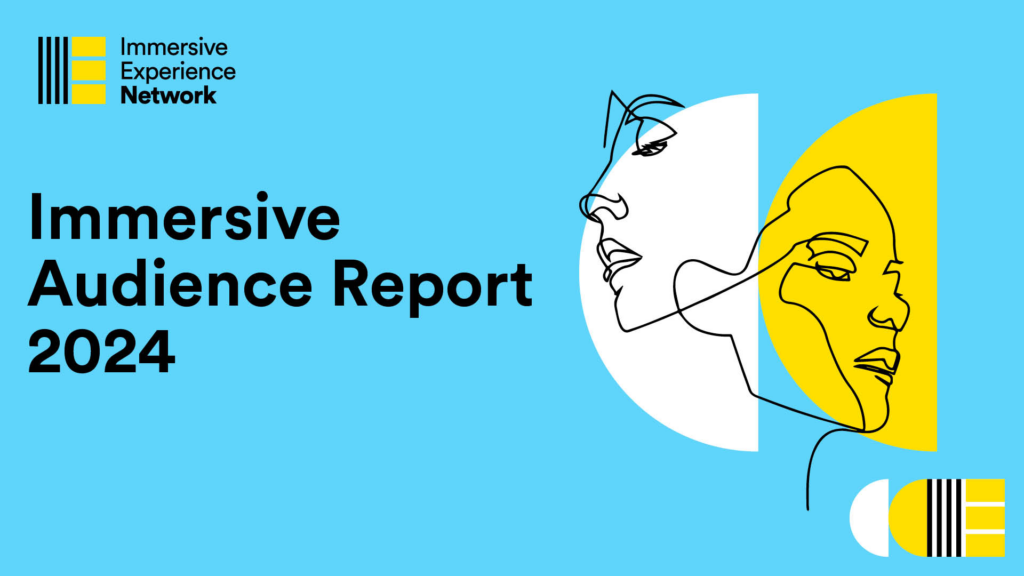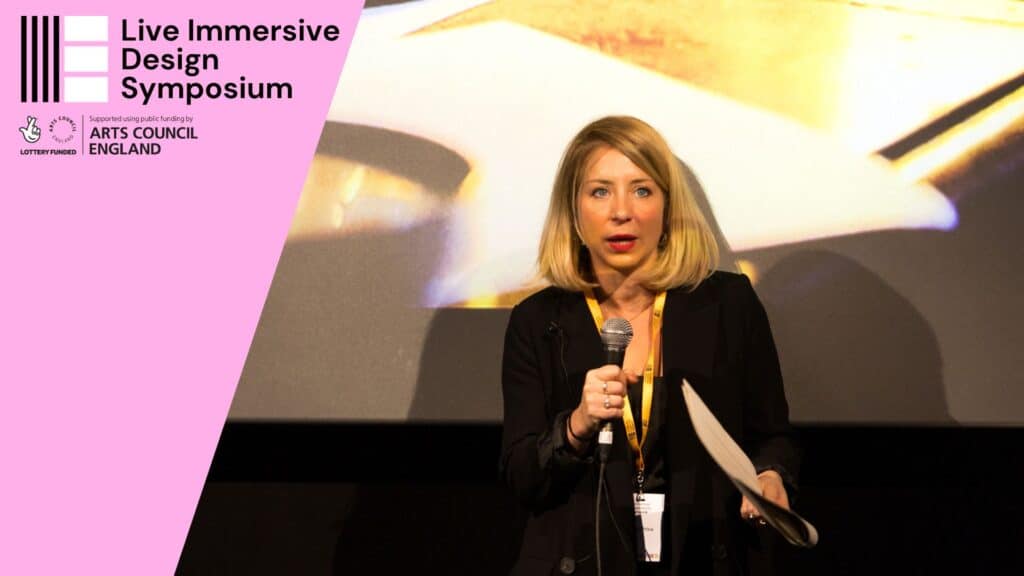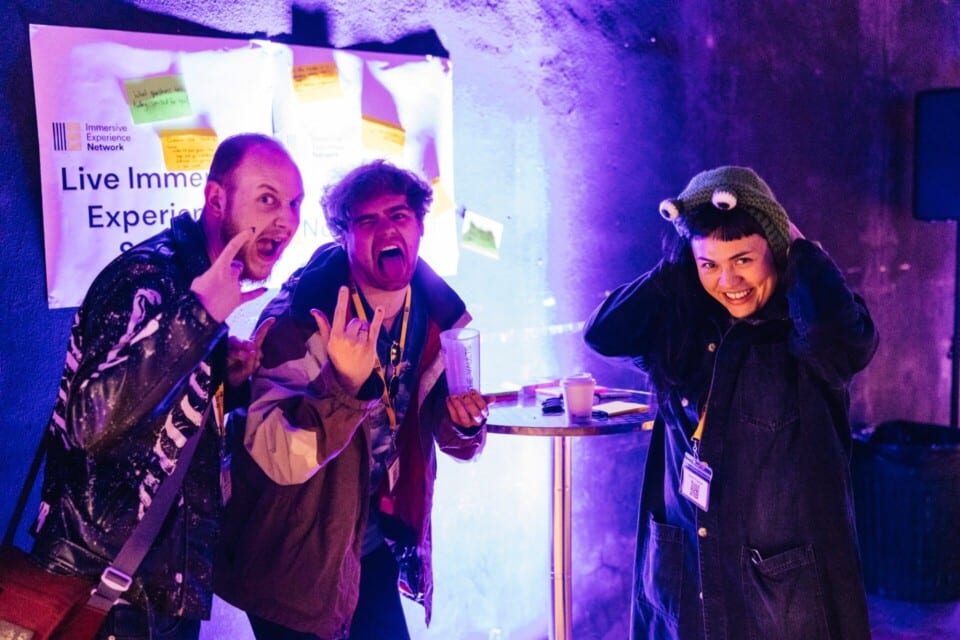“Let’s talk about venues,” said Brian Hook of Immersive Everywhere, a company known for turning big name productions into immersive experiences, in his opening speech during the third talk of the day at the Live Immersive Experiences Summit.
Moderated by Natalie Scott, from theatre-makers The Lab Collective, Brian Hook and his Immersive Everywhere right-hand man Neil Connolly were joined by Bertie Watkins, the director of immersive creators COLAB Theatre, Charlotte Potter, producer for COLAB amongst other companies, David Ralf of Theatre Deli – which creates show spaces and artist facilities in empty spaces in London and Sheffield – and Andy Barnes, a co-founder of the Immersive Experience Network and production agency Entourage, for the session.
Topics such as how to find a venue, the importance of accessibility and how often getting across the line with a show is down to good old fashioned graft and a bit of luck, were covered. A lot of the discussion was dedicated to the potential of so-called “Meanwhile Use” properties, or venues that are currently lying empty, and how they could be the key to getting many shows in business.
While there are named venues that have a history of hosting performances, Neil Connolly said that – as is often the case with the performance industries – sometimes producers need to think outside the box when it comes to finding a space.
“Sometimes, you just got to put on a coat and go for a walk around your city or your town,” he said. “Find an empty building. And there’ll be a phone number of a security firm or somebody, posted in a window, and you just got to start making calls and find out who the landlord is. And then see if you can cut a deal with them.”
Andy Barnes agreed. “So many venues have just been found by someone walking by it and going: ‘Oh, that looks nice.’ [It is a massive issue that] there is no central record of who has spaces that aren’t being used.”
The topic of conversation quickly turned to Meanwhile Spaces, where temporarily redundant spaces, such as abandoned retail or warehouses, are put to use. For the performing arts sector, this usually means turning a vacant space into a show venue. According to a 2018 report by Centre for London, in the capital more than 20,000 commercial units have been empty for at least six months, and 11,000 for more than two years.
Andy Barnes introduced the concept and said post-pandemic: “The commercial property world is undergoing a massive cultural shift. Huge swathes of retail space is empty, whilst everyone kind of works out what the next move is. […] At a time when there’s so much empty property, surely as experience-makers, there’s an opportunity here for us to help solve that problem.”
He spoke about a 2020 report commissioned by Dr Fiona Twycross, London’s first Deputy Mayor for Fire and Resilience, about Meanwhile Use spaces, saying it was “actually a great piece of work with some fantastic case studies and data to use if ever [companies] want to put the case to property owners why you should take over their building.”
David Ralf said there was a mutual benefit to property owners and theatre practitioners to work together. “Empty spaces are expensive to own,” he said.
However, Andy Barnes explained Meanwhile Spaces were not without risk. “That’s one of my biggest fears – that one day in the UK, we will wake up to stories of a major incident at a meanwhile-use or immersive space, partly then because that makes our job a lot harder, because it means that we’ll be under a lot more scrutiny.” He said working together in the future to ensure safe practice would be essential. “This is somewhere where we potentially can have strength in numbers,” he added.
The topic of conversation turned to accessibility – with Brian Hook talking about Immersive Everywhere’s 2019 Unity in Diversity commitment. “What came out of that was a really clear set of priorities and values,” he said. We’ve shut venues now because we took them on before we’d made physical access to the building [a priority]. And we just went: “You know, what, actually, running this venue doesn’t make any sense for us anymore. We’re going to bring that to a close. We now have a target of, in 2023, every single one of our performances will have an accessible element, which might include captioning, audio description. That’s a really big thing to commit to, if you mostly [put on] other people’s work.”
Charlotte Potter continued: “It’s just about being honest with your audience about what it is and what they’re coming to. And when selling a show, making it accessible to as many people as possible.”
As a final topic, the panel discussed how a show actually coming to fruition was usually dependent on three factors – having an idea, getting the money and securing the venue.
Andy Barnes said: “These three things very rarely line up at exactly the right time. Often a lot of people have one [in] place, then one goes away, one comes back… And there’s that magic moment when there are all three aligned and you can go: ‘Right, let’s do it.’”
Neil Connolly added: “You’ve got to be a bit of a gambler, because like, you know, a lot of us who work in the arts, we crave certainty, and we crave security, sometimes you [have to be at the] coalface of it, and just be like: ‘Ready?’ Or you just gotta like, play that game. It’s a holistic thing, you’ve got to have that nerve.”
Bertie Watkins agreed: “I think it does also take that extra leap of faith. And sometimes you do have to just jump that little bit further. Which is scary.”

